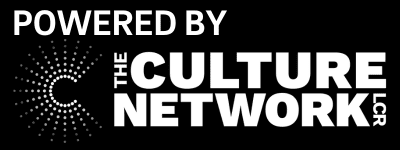The aim of the Down Dwars Delà work sessions is to collectively assemble and study a tools-not-box theory in which they bring together techniques, rituals, protocols and technologies for non-intrusive, non-extractivist, intra-vertical observation with the narrative worlds they make.
This compilation of devices would allow us to narrate the two sites according to other criteria and to make space for (un)making sense of the stories formulated by and about the Bidston Observatory and the Eben-Ezer tower.
Working and thinking with natural resources as starting point, they take the extractive technologies of colonialism to be a major part of the way we relate to Nature, and to ecologies of nature. Not in least due to these worldviews having produced “N”ature itself. It’s the intention then, to begin from intimate, sentient/spiritual or discursive relations within/to the two (un)natural environments.
They warmly invite conflicted artists, designers, (non)experts in oceanography, geography, dendrology, botany, biology and more to join them. Participants can expect fulfilling collaborative practices, exchanges of knowledge and experience, some time to work on their own related projects (if they have one) and/or finding new threads and relations to start off a new project.
Bidston Observatory
The location of the 2nd week of work sessions is Bidston Observatory just outside Liverpool, United Kingdom. This former observatory has functioned as a centre for artistic research since 2017 (Bidston Observatory Artistic Research Centre).
The building’s domes used to house telescopes, and its basements – from which the walls of the building itself were excavated – has a bedrock connection point that was used for observing seismic activities.
Most of the instruments which were in the observatory have been relocated to museums, however we can consider the observatory as an instrument in itself, with evidences of its utility encased in architecture. As with many material evidences of techno-industrial progress, the observatory is very much part of a history of capitalist endeavor, exploitation, colonialism and slavery.
The building, the location and its histories will be part of the investigations that will be developed throughout this session. At present, BOARC works to set up a heritage space, dedicated to local and expanded histories which intertwine on the site. Part of this work necessarily looks at raising questions of accumulating, archiving and cataloguing.
- Program: They will construct a common program in which there is time to inject personal moments. Some ingredients of the weeks program are/might be: traversing landscape around, archive exploration, experimental measurings, visits to mines, coasts and museums.
- There is accommodation included in this call. The rooms are a mix of single, double and dorm.
- Food will be provided/paid for, meals are a mix of group self-catering and catered. Please let them know about dietary requirements & allergies.
- If you have small dependents, they can make this work – there will be space to stay as family/kin, and collective sessions where care is taken into account.
- Participation : This is a call for physical participation. Week 2 is open for participants with pragmatic proximity to the location. Of course, this may change according to restrictions, and in respect to local and national anti-covid19 measurements. Check the website of relevant authorities: https://www.gov.uk/guidance/covid-19-coronavirus-restrictions-what-you-can-and-cannot-do
- Due to the communal nature of the site, it wouldn’t be possible to quarantine at the observatory, this you would do before arrival to the worksession.
- Please indicate if these conditions do not suit your personal situation.
- The ground floor of the observatory is fully accessible, but other floors are not. For anybody who has specific access requirements, please get in touch and they can send further text, audio or image-based information.
Worksessions
Constant work sessions function as temporary research colaboratories, collective working environments where different types of expertise come into contact with each other. Work sessions are intensive otherwise-disciplined situations to which artists, software developers, theorists, activists and others contribute.
During work sessions they develop ideas and prototypes that in the long-term lead to publications, projects and new proposals. As work sessions are multi-modal, this particular work session will be shaped in response to their current global situation into which closeness, exchange and togetherness are drastically altered.
Work-sessions favour the use of F/LOSS software. To facilitate collective work, these Guidelines for collaboration apply. https://constantvzw.org/wefts/orientationspourcollaboration.en.html
Applying
- Places are limited. If you are interested in joining, please send an application to: peter@constantvzw.org before 15 May.
- Please explain why this topic is important for you and include a couple of sentences about how this connects to your interests.
- Please indicate clearly whether you are interested in week 1 or 2 and where from you would travel.
- They will confirm participation last week of May.

